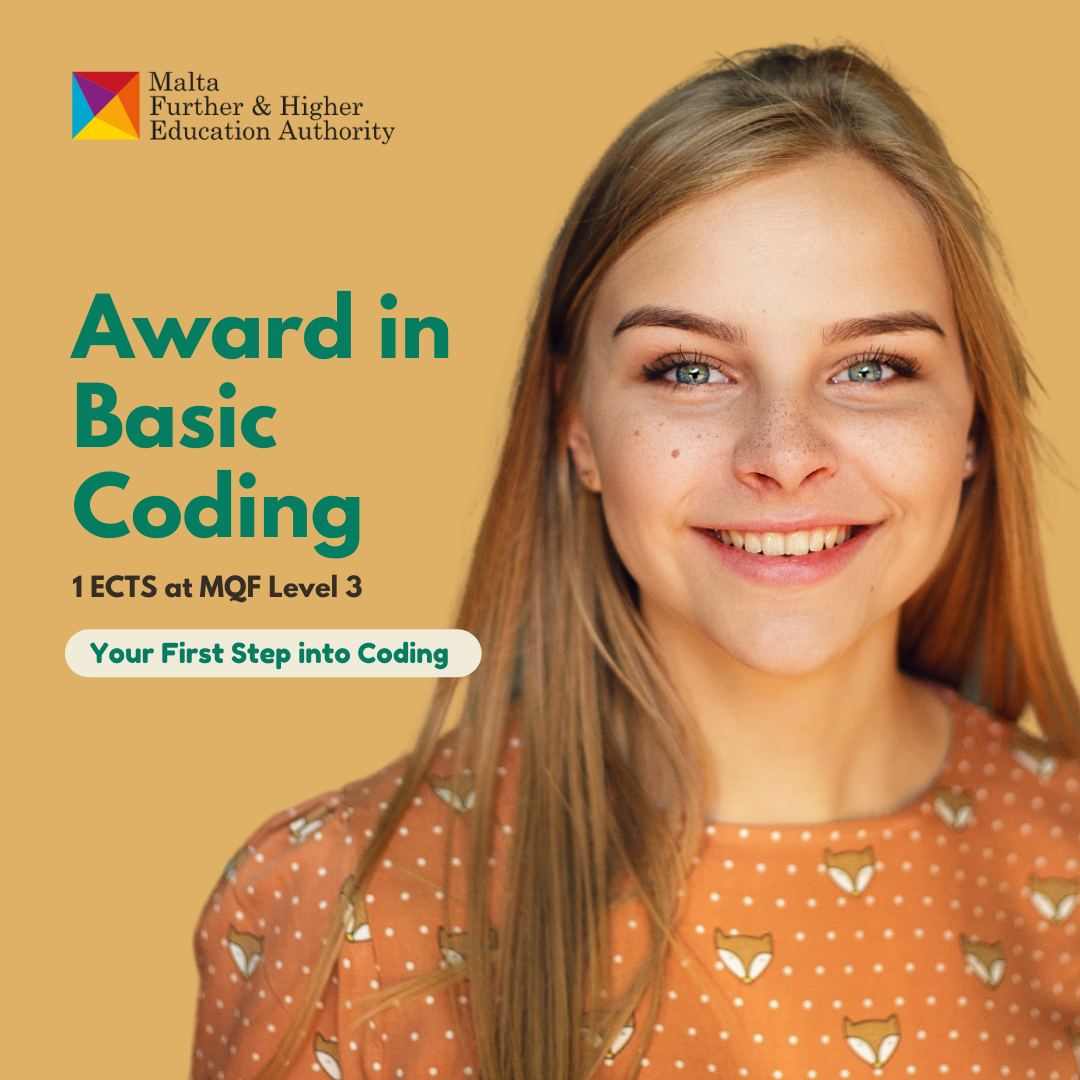Description
The course is aimed at students aged 12-15 who wish to learn a key skill that will enhance their skillset, particularly those that have no knowledge of computer programming. It introduces the students to the basic concepts and techniques of developing programmes for problem solving through coding. Students will learn to design, implement, test, debug, and document programmes. The course establishes the foundation on which students will be able to start developing application programmes in different high-level programming languages such as Python.
Learning Outcomes
Outcome Type:
Skill
The learner will be able to:
a) Utilise basic computer programming techniques to effectively and systematically solve a variety of problems;
b) Demonstrate knowledge and proficiency in utilising and applying fundamental programming terms, including keywords, variables, operators, and loops;
c) Apply a stepwise problem-solving process, including the creation and implementation of algorithms, flowcharts, pseudocode, and actual code, to solve programming challenges;
d) Employ computational thinking skills to design programmes that efficiently address specific requirements and objectives; and
e) Execute the debugging and testing procedures to identify and rectify errors in programme code, ensuring the functionality and reliability of the programmes.
Outcome Type:
Knowledge
The learner will be able to:
a) Demonstrate understanding of fundamental programming concepts and their functions by accurately defining and explaining them;
b) Apply critical thinking skills to engage with computer programming and problem-solving, fostering a passion for the subject;
c) Utilise basic programming knowledge to explore and create problem-solving methods;
d) Employ mathematical techniques to optimise accuracy and efficiency in problem-solving, demonstrating proficiency in applying mathematical concepts to programming; and
e) Analyse and articulate the practical applications of computer programming in everyday tasks, illustrating how programming enhances efficiency and productivity.
Requirements:
Students need to be able to read, write and communicate in English and able to use the internet and their devices to access online content. No previous coding or programming experience is required!
Certification
Title: Award in Basic Coding
EQF/MQF: Level 3
ECTS: 1 ECTS
Awarding Body: European Institute for Emerging Technologies (EIET) (License Number: 2023-109)
Regulatory Body: Malta Further and Higher Education Authority (MFHEA)

